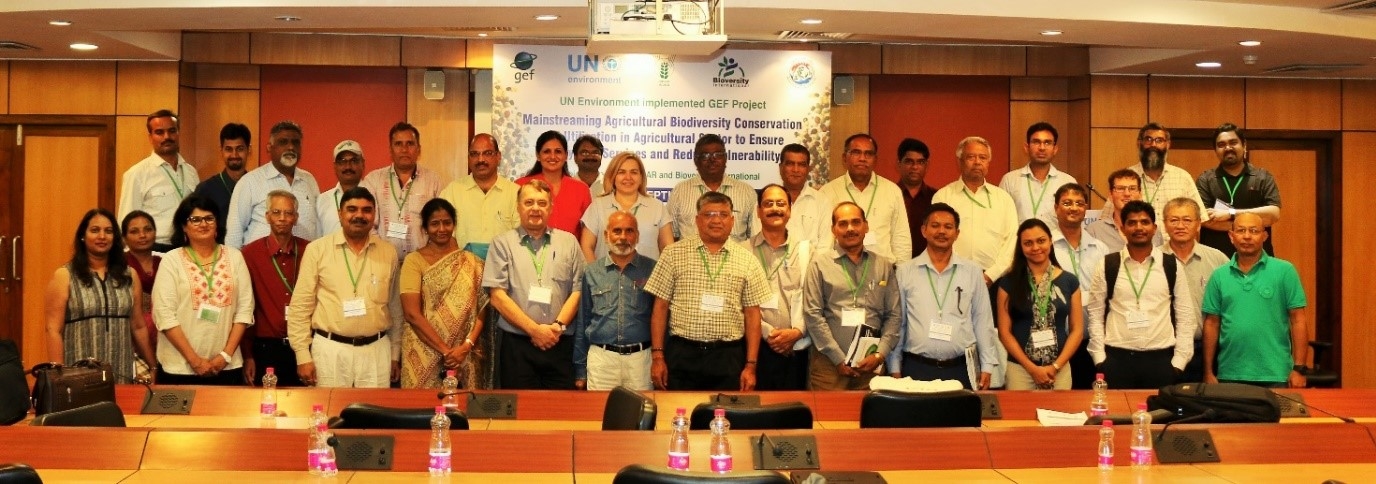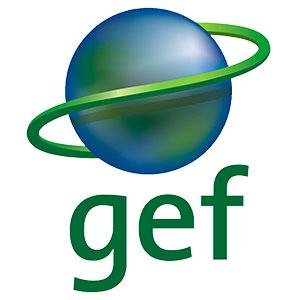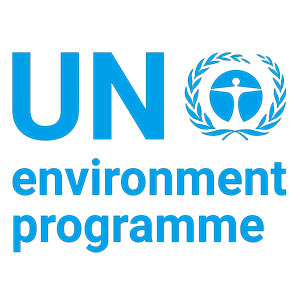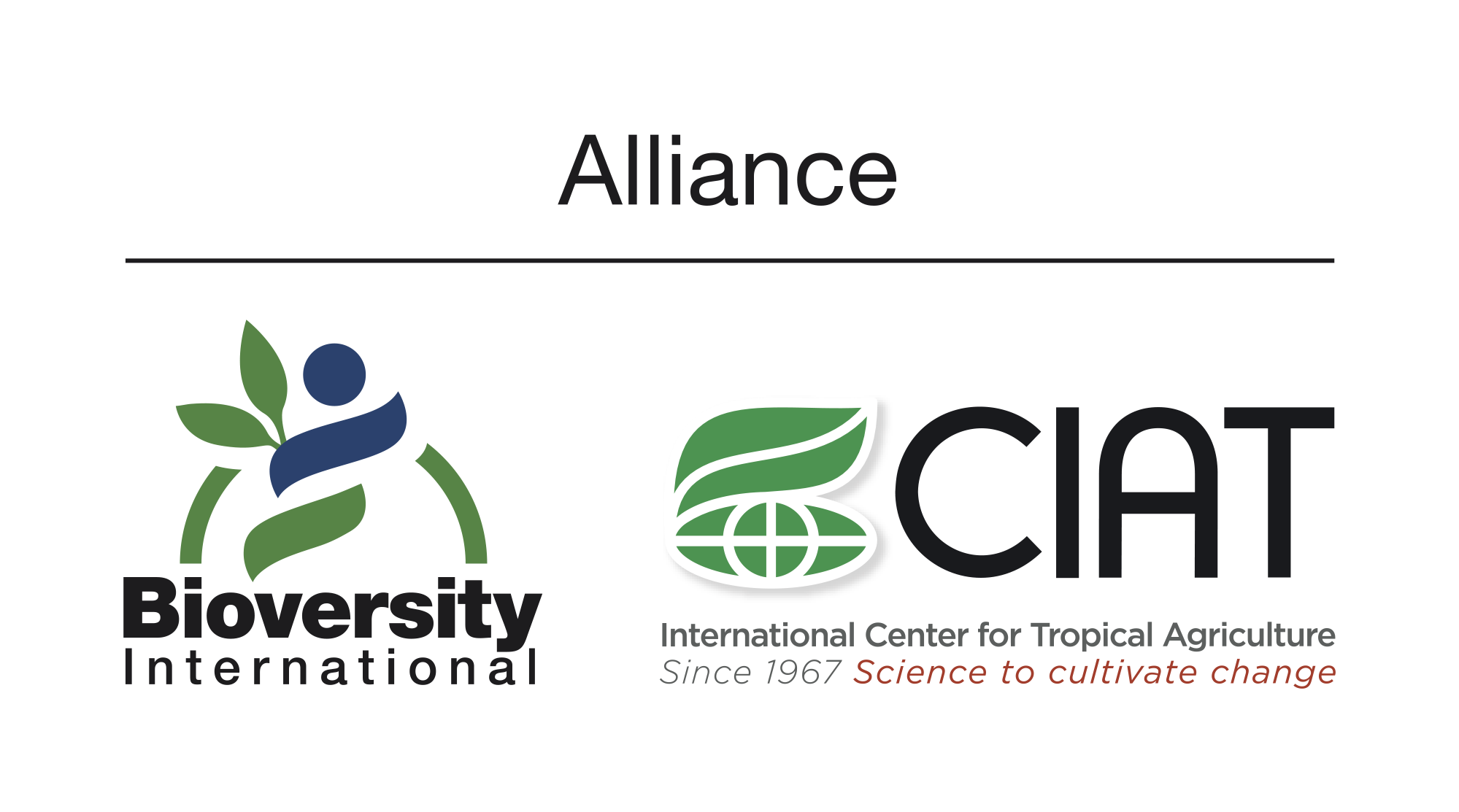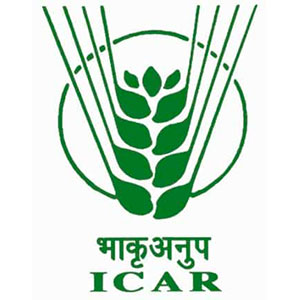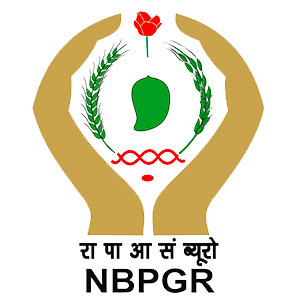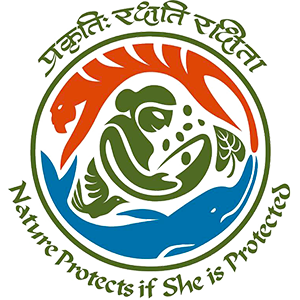The technical sessions of the Inception Workshop were held at ICAR Training Room, NASC Complex, New Delhi from 18-20 July 2017. The workshop was attended by all the National Project Partners, UNEP-GEF representative, resource persons and staff of Bioversity International HQ and India office. The purpose of the meeting was to orient national project partners and finalize the technical programme. The focus was on implementation arrangements, reporting systems and management procedures and plan of action.
JC Rana, National Project Coordinator, presented the over view of the project objectives and expected outputs. He explained that the project is being implemented at four different agro-ecological regions spreading over 15 districts of India states of India.
Hugo Lamers, Associate Scientist, Socio-economics and Marketing, Bioversity International gave an overview of partners, projects sites, crops and operational mechanism for project implementation. He explained the site and crops selection criteria and the development of participatory network. He urged the partners to build upon experiences to ensure the project is embedded in ground realities. The crops selected for the project are integral and holistic to improve resilience of local livelihood including diverse benefits – income, nutrition, fodder use, resilience and eco-system services.
Malvika Dadlani, Consultant explained the workplan relationship among different components of the project.
Marieta Sakalian, Senior Programme Management Officer, United Nations Environment Programme sharing the monitoring, evaluation and reporting requirements.
Stephan Weise, DDG Research from Bioversity International, Rome presented the role of Bioversity International as overall project executing agency.
RR Hanchinal, Consultant, Bioversity International, India discussed the principles, procedures and challenges involved in protection of farmers’ rights. He explained that Indian law awards, rewards and recognizes farmers, local and indigenous communities for their contribution in conservation and varietal development particularly in areas specified as agro-biodiversity hotspots.
Paul Quek, Consultant, Bioversity International, presented participatory diagnosis, outcome mapping, sustainable livelihood analysis, community-based biodiversity management, information sharing tools. He briefed on community-based biodiversity management (CBM) process for empowering community and safeguarding biodiversity.
Focused Group Discussions were held on activities mechanism, workplan including role and responsibilities of each partner.
